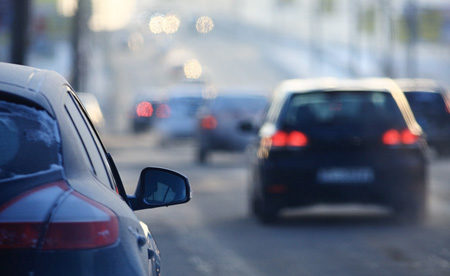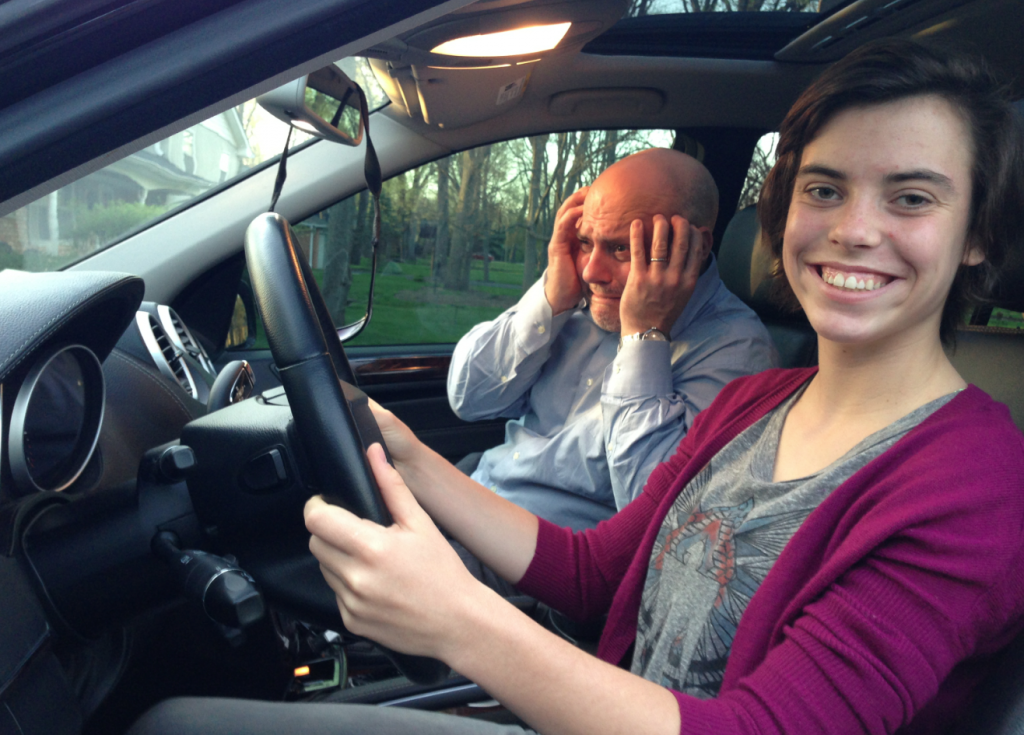This coming June, my sweet daughter Josie will be 16 years old. That means, yes, a long-standing American rite of passage is available to her – getting her driver’s license.
To be frank, I have not thought about the specific requirements needed for Josie to get her license. (I just remember what the requirements were for me in 1984!) A lot has changed in the last 20 years. With this blog, I hope to explain the current requirements under Indiana law, not only for myself, but anyone else interested in this issue in their own family and from the perspective of a parent.
Step 1: Learner’s Permit
Your child may obtain a learner’s permit if he/she is at least 15 years old and is enrolled in an approved driver education program. Completion of the education program is not necessary to get a learner’s permit, just be enrolled. Once your child has received his/her learner’s permit AND the course has actually started, then your child can legally drive with you (as a parent or guardian). Once signed up at a licensed driver education school, you will need proof of enrollment. This is obtained from the program and is called a Certificate of Driver Education Enrollment. Here’s a list of approved driver education programs.
In addition, when applying for a learner’s permit, your child (while accompanied by you) must also:
- Present documents of identification. At least two original documents proving Indiana residency. A parent can also sign an Indiana Residency Affidavit.
- Pass a vision screening test and
- Pass a knowledge examination.
- A signed Agreement of Financial Liability by your child’s parent or guardian. I recommend only one parent sign this document. This means that if your child is at fault for an accident, then you are jointly responsible with your child for the damages caused. The agreement of financial liability is automatically terminated when the minor driver turns 18 years old.
- Keep a Log of Supervised Driving. Indiana law requires at least 50 hours of supervised driving practice with a licensed instructor or with a licensed driver who is at least 25 years old, or a spouse who is at least 21 years old. At least 10 hours of supervised driving practice must be nighttime driving. The practice time must be maintained in a Log of Supervised Driving (download it here) and presented to the BMV later at the time of application for a driver’s license. The log must be signed by a parent or legal guardian.
Driving With A Learner’s Permit:
If enrolled in an approved driver education program, your child may practice driving only after beginning an approved driver education program. Your child may drive only when accompanied by a certified driving instructor in the front seat of a vehicle equipped with dual brake controls, or When a parent, step-parent or guardian who is at least 21 years of age and has their valid driver’s license with them is seated in the vehicle’s passenger seat.
If your child (I do not recommend this) is NOT enrolled in an approved driver education program, then your child and you may practice driving with a learner’s permit only when a parent, guardian, step-parent or other relative who is 21 years of age or older and who has their valid driver’s license with them is seated in your vehicle’s front passenger seat.
Step 2: Probationary Driver’s License
The Indiana requirements are:
- Age: If your child has successfully completed an approved driver education program, then your child must be 16 years and 180 days of age, and have held an Indiana learner’s permit for 180 days to obtain a probationary driver’s license. If your child has not successfully completed an approved driver education program, then your child must be at least 16 years and 270 days old to obtain a probationary driver’s license.
- Documents of Identification. (same as learner’s permit)
- Present a log of Supervised Driving. (see above)
- Pass a driving skills test. This can be done at the driver’s education program OR at the license branch. However, you must take the driving skills test at a license branch if any of the following situations occur:
- Your driver education learner’s permit expires; or
- You receive a failing grade of 79 percent or below in either classroom instruction or behind-the-wheel training in your driver education program; or
- Your driver education program does not participate in the BMV’s driving skills test waiver program.
- Pass a knowledge examination.
- Pass a vision screening test.
- If you are 16 or 17 years old when you apply for a driver’s license your child must also have a parent or guardian sign an agreement of financial liability.
Driving With A Probationary Driver’s License – VERY IMPORTANT!
If your child is 16 or 17 years old when he/she obtains their driver’s license, your child’s license is considered probationary until they are 18 years old. If your child has a probationary driver’s license, then every passenger in the vehicle must wear a seat belt even if the vehicle is a truck or a sport utility vehicle.
Telecommunication devices
Your child may not use any type of telecommunication device while driving except to make emergency 911 calls.
Driving restrictions
Your child may not drive between 10 p.m. and 5 a.m. for 180 days after getting their probationary license. After you have driven for 180 days, you may not drive during the following hours:
- Saturday and Sunday, between 1 a.m. and 5 a.m.
- Sunday through Thursday, after 11 p.m.
- Monday through Friday, before 5 a.m.
However, your child may drive at any time if traveling to or from work, school, or a religious event, or if you are accompanied by an individual with a valid Indiana driver’s license who is 25 years or older.
Driving with passengers
Your child may not drive with passengers for 180 days after getting your license, unless your child is also accompanied by a licensed instructor, an individual with a valid Indiana driver’s license who is 25 years or older, or a parent, guardian, or step-parent who is 21 years or older. Your child may drive with their sibling(s) during the hours allowed by law.
Court diversion programs
Your child will not qualify for court diversion programs while holding a probationary license.
Interestingly enough, I’ve seen and heard from my friends and neighbors, that fewer sixteen years olds are applying for their driver’s license. Turns out, the statistics support this notion. According to The Washington Post and federal data, 30.7 percent of 16-year-olds got their licenses in 2008, compared with 44.7 percent in 1988. The reasons for this decrease vary: teens are already pre-occupied with other things to do, technology, they simply don’t want to drive, the costs, and the more rigid standards required by state laws.
Whatever the reasons are, Indiana’s laws on the subject are detailed and worth taking the time to look at them. Good luck!









